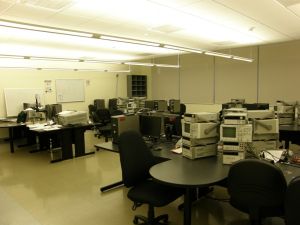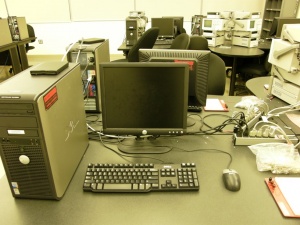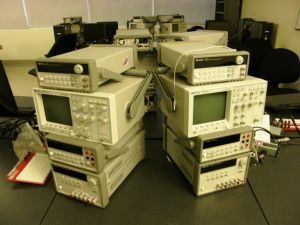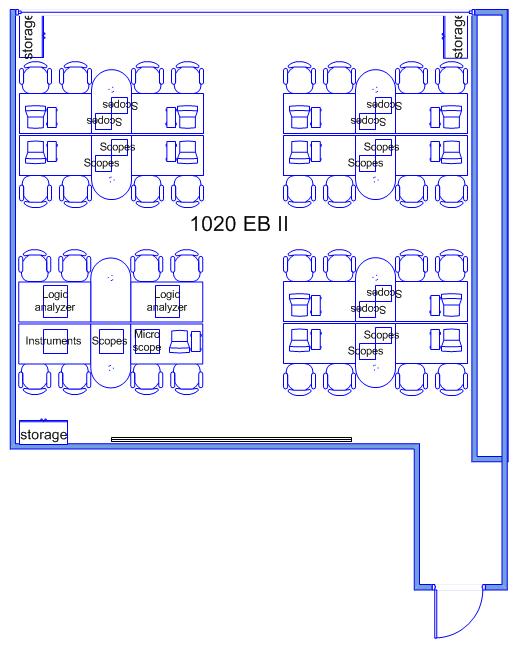Difference between revisions of "Teaching Labs/1020 EB2"
| Line 12: | Line 12: | ||
| − | {{# | + | {{#tag:iframe|key="local"|path="calendar/u/0/embed?src=ncsu.edu_78723pfvenq83hsg48c9i0ak5c@group.calendar.google.com&ctz=America/New_York"}} |
| − | | | ||
| − | |||
| − | |||
| − | |||
| − | |||
| − | |||
| − | |||
| − | |||
| − | }} | ||
Latest revision as of 10:59, 8 August 2022
Microelectronics Lab
The Microelectronics Lab contains a mix of computers and advanced equipment and instrumentation. Each workstation provides a computer, oscilloscope, multimeter, function generator, and DC power supply, and are large enough to allow students to work in teams. Additionally, a separate station provides additional equipment, including a research microscope, spectrum analyzers, and semiconductor parameter analyzers.
Microelectronics describes the study and manufacture of electronic components on a very small scale (commonly measured in micrometers or less). These devices are widely used in integrated circuits and other solid-state devices, and are an important part in the continuing trend of device miniaturization. Courses in the Microelectronics lab focus on the components and devices used and created in the field of microelectronics, and students gain hands-on experience designing actual electronic circuits. Students also utilize Cadence software to perform circuit design and simulation, and work on assignments and projects to design and create electronic circuits.
Lab Schedule
The schedule is subject to change at anytime, so check back often. To schedule this lab, email ecehelp@ncsu.edu.
Related Research Areas
Course Information
- ECE 302
- ECE 492J
Equipment
Number of Computers:
|
Operating System:
| |||
Model:
|
Processor:
|
RAM:
|
Software:
|
Instruments:
|



